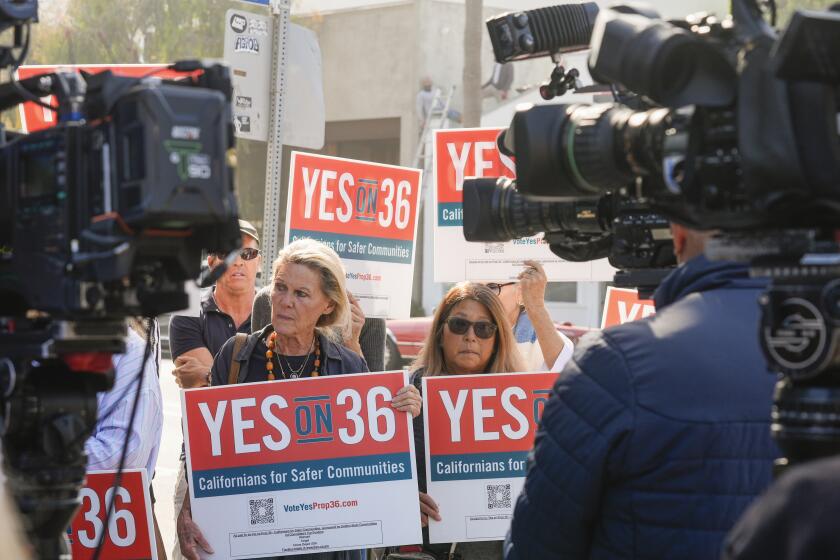In California, Democratic candidates vying for six crucial congressional districts find themselves aligning with their Republican opponents in support of Proposition 36, a tough-on-crime ballot measure to be voted on in the upcoming November election. This unusual unity reflects the perception of political vulnerability among Democrats regarding crime, especially in districts where close races could shift the balance of power in Congress. Proposition 36 aims to impose stricter penalties for retail theft and drug offenses, particularly those involving fentanyl, and recent polls indicate strong voter support for the initiative. The six congressional seats affected are in Orange County, the Inland Empire, and parts of the San Joaquin and Antelope valleys—areas that are politically mixed and crucial for both parties as they eye control of the House.
Recently, Republicans have capitalized on rising concerns related to drug addiction, homelessness, and organized retail theft as key voter issues. Political strategists suggest that any Democratic candidate opposing Proposition 36 would risk being framed as “soft on crime” by their Republican rivals, which could be detrimental to their campaigns. Given that many of these pivotal districts reside outside major urban centers, candidates must navigate voter desires for effective law enforcement while maintaining support from their more liberal constituencies. As such, Democratic candidates face the challenging task of addressing crime concerns without alienating their base.
Despite California generally seeing a decline in property crimes, notable regional increases—such as a 28% rise in Alameda County—have further fueled the urgency for a strong legislative response. The fentanyl crisis, resulting in thousands of deaths over recent years, adds to the pressures on elected officials. Proposition 36 seeks to revise parts of Proposition 47 from 2014, which decriminalized certain non-violent offenses to reduce prison overcrowding. Supporters argue that the measure will enhance accountability for repeat offenders and prioritize treatment options, while opponents contend that the proposed changes are costly and could lead to inadequate funding for necessary drug treatment programs.
In the Central Valley, Democratic candidate Adam Gray is actively supporting Proposition 36 in his race against Republican incumbent John Duarte, highlighting public safety and accountability as key electoral issues. Similarly, in the 41st Congressional District, Democratic challenger Will Rollins—a former federal prosecutor—has expressed backing for the measure but emphasizes the need for enhanced federal law enforcement to combat the fentanyl crisis at the southern border. Polling data shows broad support from California voters across various demographics, with significant backing especially in San Diego and Orange counties, indicating that candidates can hardly avoid addressing the topic of Proposition 36 in their campaigns.
California’s battleground districts showcase candidates on both sides of the aisle responding proactively to voter concerns regarding crime. For instance, in California’s 47th Congressional District, state Sen. Dave Min has positioned himself as a moderate on public safety, aligning with Proposition 36 while facing scrutiny from his Republican opponent, Scott Baugh, over his prior record. This electoral dynamic further establishes the significance of the proposition in shaping the narrative of public safety in various congressional races, where candidates must clearly differentiate themselves on broader policy discussions.
Overall, the apparent convergence of Democratic and Republican candidates around Proposition 36 highlights the priority voters place on crime and safety. With several congressional races expected to be closely contested, candidates who can articulate a comprehensive stance on these pressing concerns while also addressing other critical issues may stand a better chance of resonating with voters. Ultimately, as voters navigate their decisions in November, the outcome of Proposition 36 will likely have lasting implications, not just for public policy but for the political landscape in California and beyond.

